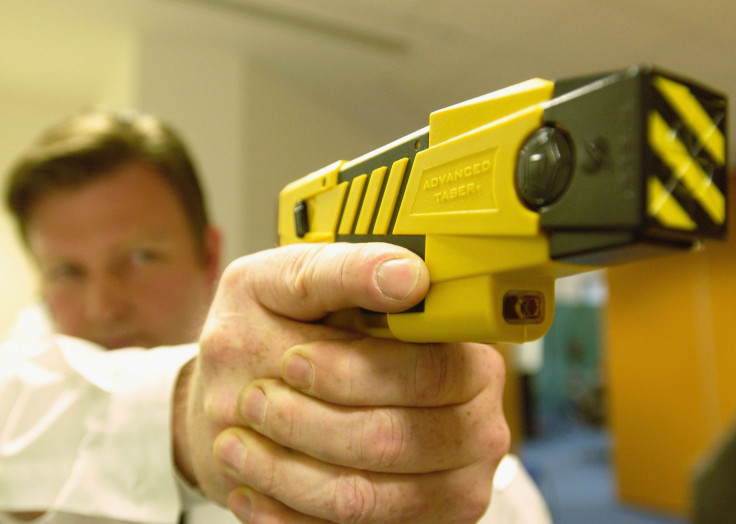Taser’s Electric Shock Causes Dementia-Like Symptoms, Undermines Police Interrogations, Study Says

The burst of electricity from a stun gun can disrupt the functioning of the brain, negatively affecting “a person’s ability to remember and process information,” according to a new study carried out by Drexel University and Arizona State University (ASU).
In the first-of-its-kind study, researchers subjected participants to 50,000-volt Taser shocks and then tested them for cognitive impairment. Some test participants showed “short-term declines in cognitive functioning comparable to dementia,” according to a statement on the Drexel University website. Given the use of stun guns by 17,000 police departments across the United States, the study raised “serious questions about the ability of police suspects to understand their rights at the point of arrest.”
Authored by Professor Robert J. Kane of Drexel, and Professor Michael D. White and Assistant Professor Justin Ready of ASU, the study was funded by the U.S. Department of Justice’s National Institute of Justice. It was the first time that Taser was going through “a major randomized clinical trial outside the purview of Taser International,” the statement added.
Researchers recruited 142 participants who were tested for drug use, cardiac ailments and psychiatric problems, and other “significant protections in place to insure participant safety,” White said. The participants were divided randomly into four groups of 37, 32, 35 and 38 people, and each group was put through different “treatments.”
Participants were tested on a variety of cognitive instruments at five stages, the first being at the time of selection, followed by before they were subjected to their varying “treatments” and then being tested again immediately after. The tests were repeated an hour later and once again after a week.
The greatest variability showed up on the Hopkins Verbal Learning Test, which measures a person’s ability to learn new information, like a string of words, and to subsequently recall that information after different intervals of time. According to the study, “Taser exposure caused statistically significant reductions in verbal learning and memory. The effects lasted, on average, less than one hour.”
While each group had a mean score above the national average on the cognitive tests before being exposed to their “treatment,” a fourth of each group subjected to Taser shocks showed a mean level of cognitive function equal to 79-year-old adults, suggesting mild cognitive impairment. Additionally, participants who were Tased also reported difficulty in concentrating, increased levels of anxiety and the feeling of being overwhelmed.
“The findings from this study suggest that people who have been shocked with a Taser may be unable to understand and rationally act upon his or her legal rights, and may be more likely to waive their Miranda rights directly after Taser exposure or to give inaccurate information to investigators,” Kane said.
The study, “TASER Exposure and Cognitive Impairment: Implications for Valid Miranda Waivers and the Timing of Police Custodial Interrogations,” was published in the journal Criminology & Public Policy.
© Copyright IBTimes 2025. All rights reserved.





















